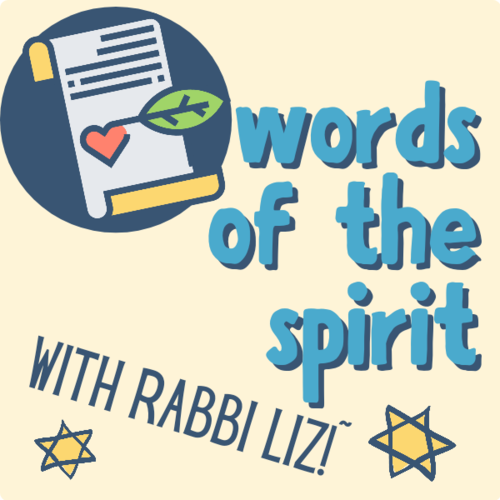In the Middle
15/06/2021 02:20:17 PM
| Author | |
| Date Added | |
| Automatically create summary | |
| Summary |
When the Torah begins, it seems as if there was nothing, and then there was something. At the start, when elohim created the celestial and earthly realms, on earth was utter nothingness, with blank darkness hovering over the depths… and then, everything emerges from it.
It’s a strange, haunting vision, provoking many ways of understanding it – scientific, mathematical, spiritual, ethical, and more. We can also challenge it, just as we can challenge any passage or story in Torah by examining the spaces between the words, or verses, to imagine what is missing. We can also extend the story to make it relevant to this very moment in our lives.
The mystics will say there was Something already present, the aleph (first letter of the Hebrew alphabet) before the bet (the second letter of the Hebrew alphabet and the first word of Torah). Aleph by itself has no sound, and the mystics suggest the Divine Presence preceded existence. Physicists say something similar. Their version of breishit/In the Beginning looks like a massive and sudden expansion, known as the Big Bang. What came before? Mystics and physicists agree: we can’t fully know.
Whatever form the explanation takes, life ensued. As our story goes, the creation of all matter celestial and earthly culminates in the appearance of human life, and, as our story continues, things go downhill pretty rapidly from there.
In the Middle, in our part of the story now, there isn’t one massive flood that destroys most life on the planet in one fell swoop as the consequence of human wickedness, as there was in the second parshah of Torah. There is rather a steadily increasing pile-up of climate disasters. There isn’t one singular moment of linguistic and cultural separation and alienation between peoples like the Tower of Babel. There is just one teeming babble of a planet, with lines of miscommunication sometimes aligned with borders and sometimes tangled within them.
These reflections arose as I contemplated these past weeks of up and down news about provincial pandemic restrictions and local vaccine distribution; reports about the discovered remains of hundreds of Indigenous children on the grounds of a former residential school in BC; the deadly targeted van attack on a Muslim family in London; and then, both locally and internationally, reverberations from political transition as well as entrenched status quo in the Occupied Palestinian Territories, and the dramatic assaults and loss of life as a result of the war in Gaza.
Something about these weeks has made me feel as though we’re experiencing something like a cosmic anti-big bang, as if our universe was reversing course and contracting into smaller and smaller tranches of personal interests and alliances. Yes, yes, we were there, allied with our Christian and Muslim neighbours at a vigil for the 215 children, at the base of the Human Rights monument, together as humans. And yet, how and why it remains so important for us to stand in our traditions, some with our politics literally on display, heightened for me a sense of apartness from within our particularities.
I’m not despairing, though I’m sad. I see opportunities for justice, right relation, and re-alignment across borders and within them, post-pandemic, that can lift us out of the muddle of the Middle of existence, and turn towards sharing the planet, our countries and our cities in safety and justice for all. Joanna Macy calls this The Great Turning, a third stage of human existence, post the transformations known as the agricultural and industrial revolutions.
In the face of massive injustices and tragedies, we do not have the luxury of despair. Yet we desperately need - to fully quote another title of Macy’s - Active Hope: How To Face The Mess We’re In Without Going Crazy.
Hope, tikvah, is a great, limitless resource, nurtured by empathy and the highest aspirations of dignity of personhood for all. We can mine hope eternally, embed its sparks in our art and in our visions for community, and hold on to it when we are witness to disaster and pain. Let hope fuel our creativity, our caring and our calls to action. Let a glimmer of hope radiate from its origins in all existence to light our lives, and the lives of kol yoshvey tevel, all who dwell on earth.
Rabbi Liz
Sun, 6 July 2025
Special Messages from the Rabbi
Privacy Settings | Privacy Policy | Member Terms
©2025 All rights reserved. Find out more about ShulCloud







